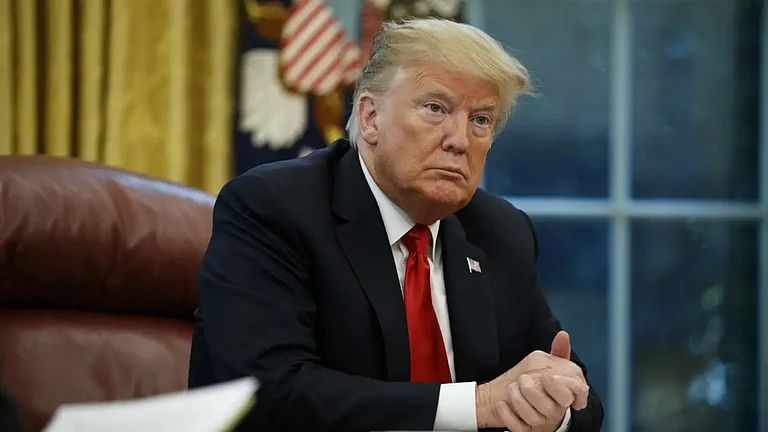After keeping global markets on edge for months with talks of "reciprocal tariffs", United States President Donald Trump hit the pause button—in almost a week after formally announcing the plan. He has now granted a 90-day break to over 75 countries, sparing them from immediate tariffs on their exports to the US. These countries, according to Trump, showed a willingness to negotiate and didn’t retaliate in any way. Due to this criteria, the tariffs on China did not receive the same treatment and in fact tariffs on Chinese goods have been raised sharply—from 104% to 125%.
From Tariff Firestorm to 90-Day Pause: What Changed Donald Trump’s Mind?
Until last week, Trump had shown no signs of backing down—despite mounting pressure from fellow Republicans, business leaders and even close allies. So, what shifted?
"Based on the fact that more than 75 countries have called representatives of the US to negotiate a solution and that these countries have not, at my strong suggestion, retaliated in any way, shape, or form against the United States, I have authorised a 90 day pause, and a substantially lowered reciprocal tariff during this period, of 10%, also effective immediately," Trump announced.
Until last week, Trump had shown no signs of backing down—despite mounting pressure from fellow Republicans, business leaders and even close allies. So, what shifted?
Trigger Behind the Pause
By Wednesday, it was clear that people trying to convince Trump for a change of course were not giving up at all. Simultaneously, another worrying incident was taking place. Investors have started pulling out of US government bonds—which are usually seen as very safe. This development suggested a worse picture for the country's economy that what was predicted by his advisers.
People familiar with the situation said that due to rising concern inside the Treasury Department, especially in regards to the bond market, forced Trump to put his "Make America Wealthy Again" plan on hold for a while, according to a report by CNN.
The report also said that Treasury Secretary Scott Bessent raised the concerns directly to Trump on Wednesday in a meeting prior to the pause announcement. Even as the President had not made any decision to halt the new tariff rates yet, but he asserted to watch stock market very closely.
“The bond market is very tricky, I was watching it. But if you look at it now, it’s beautiful—the bond market right now. But I saw last night where people were getting a little queasy,” Trump said.
Trump also said that he thought about paring back his tariffs “over the last few days” in discussions with Bessent and Commerce Secretary Howard Lutnick and the decision probably came together early this morning.
“We didn’t have access to lawyers. We wrote it up from our hearts,” Trump told reporters.
Notably, hours before making the announcement, Trump on his social media platform Truth urged the investors to "BE COOL!" and reassuring them that "everything is going to work out well" and that "the USA will be bigger and better than ever before!"
Opportunity for India?
Back home, Commerce and Industry Minister Piyush Goyal today said that India is "wisely" handling the US reciprocal tariff issue, with an aim to increase its trade with the US by 2.5 times, according to ANI. Speaking at the Rising Bharat Summit yesterday, Goyal informed that India is in constant engagement with the US to roll back the additional tariffs. "We believe that India was not one of those countries which really needed to have tariffs on them because we were already in engagement for a bilateral trade deal," he noted.
India has been trying to strike a deal with the Trump administration from the outset and already lowered duties on many American imports. Prime Minister Narendra Modi was also among the few world leaders to visit Washington DC this year in February, to hold talks with Trump on bilateral trade.
Reacting to Trump's tariff announcements, India's stock market also plunged and remained volatile since then. On April 7, the stock market suffered one of its steepest declines since June 2024, driven largely by fears of a US recession triggered by the tariff standoff.
With this 90-day pause and a base line tariff of 10%—significantly lower than the 26% 'discounted' tariff imposed—New Delhi now gets some breathing space. The move is also expected to calm investor nerves and bring temporary relief to the stock markets.
